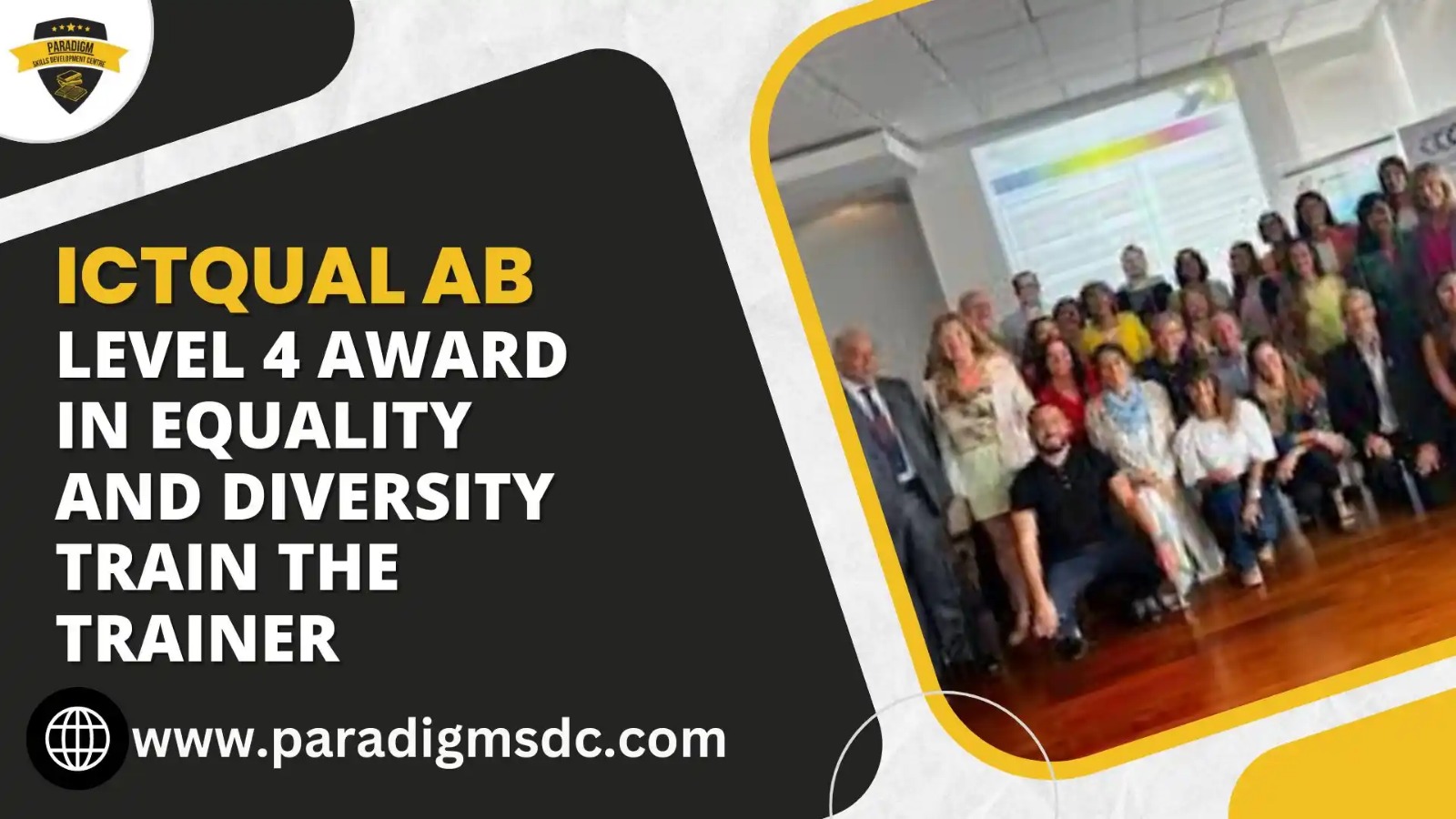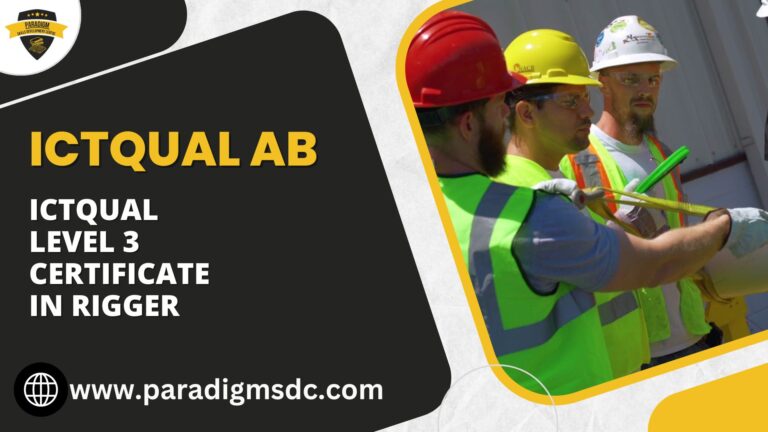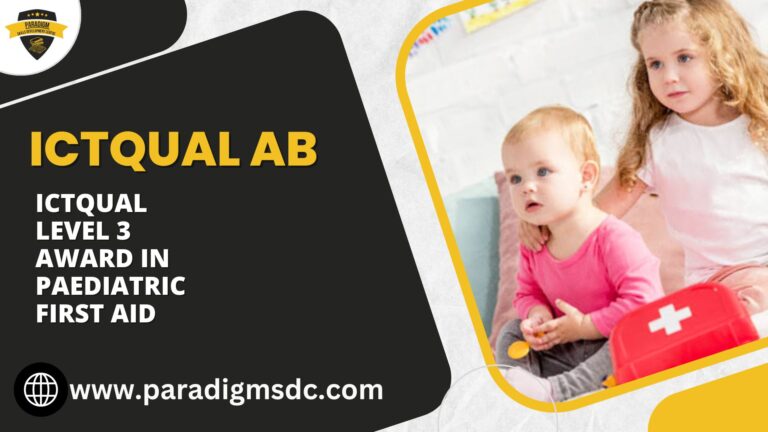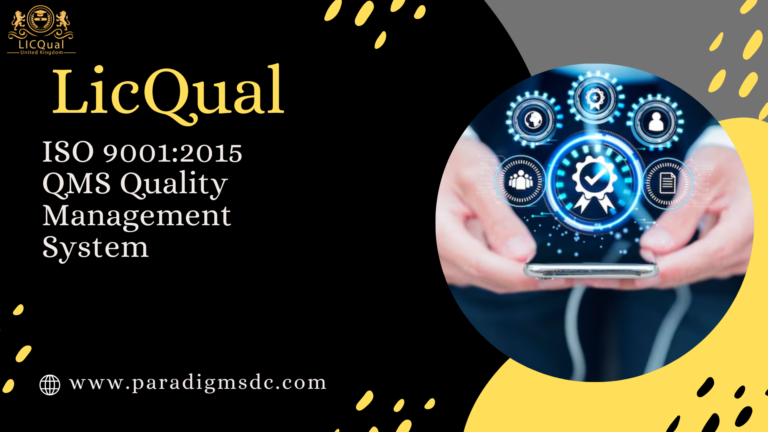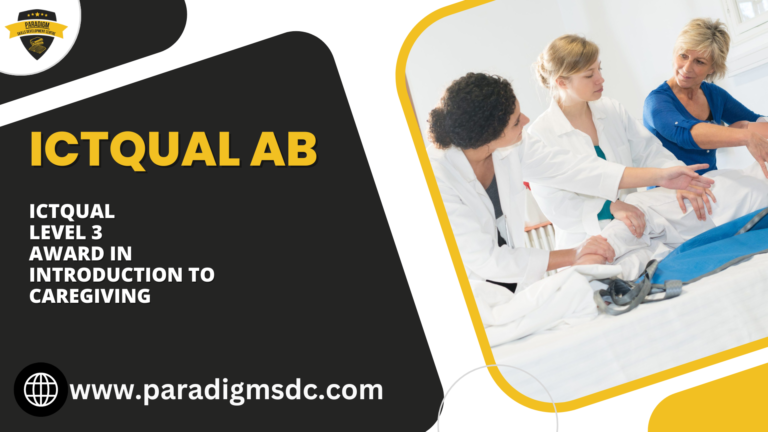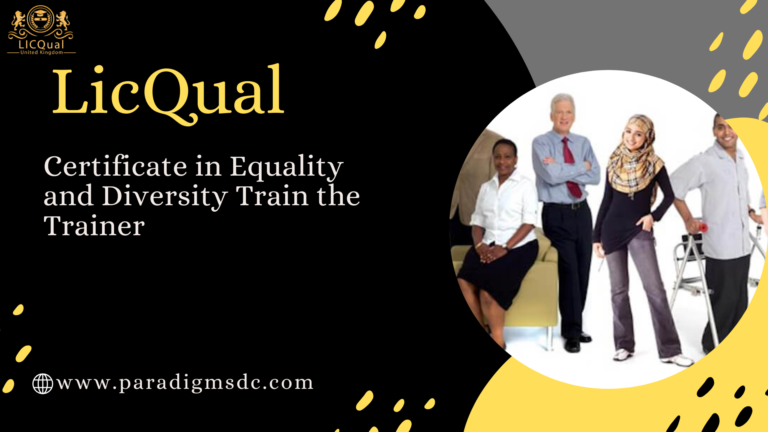Course Introduction
In today’s diverse and interconnected world, promoting equality and diversity within the workplace is essential for fostering an inclusive environment. The ICTQual Level 4 Award in Equality and Diversity Train the Trainer course is designed to equip professionals with the skills and knowledge to effectively train others in these crucial areas. This course aims to create advocates for equality and diversity who can lead by example and inspire positive change within their organizations.
Course Overview
The ICTQual Level 4 Award in Equality and Diversity Train the Trainer is a comprehensive program that covers key aspects of promoting inclusivity. The course combines theoretical foundations with practical applications, enabling participants to confidently deliver training on equality and diversity. The curriculum includes modules on understanding diversity, recognizing and addressing discrimination, creating inclusive policies, and effective training methodologies.
Course Study Units
- Introduction to Equality and Diversity Training
- Legislation and Policies
- Unconscious Bias and Stereotypes
- Cultural Competence and Sensitivity
- Addressing Discrimination and Harassment
- Inclusive Leadership and Organizational Culture
- Designing and Delivering Equality and Diversity Training
- Facilitation Skills and Techniques
- Assessing Learning Outcomes and Providing Feedback
- Continuous Professional Development and Improvement
Learning Outcomes
Upon completion of the course, participants will be able to:
- Introduction to Equality and Diversity Training
- Understand the importance of equality, diversity, and inclusion in various contexts.
- Define key concepts and terms related to equality and diversity training.
- Recognize the benefits of promoting diversity and creating inclusive environments.
- Identify the role and responsibilities of an equality and diversity trainer.
- Legislation and Policies
- Explain relevant legislation, regulations, and policies related to equality and diversity.
- Understand the legal frameworks governing discrimination, harassment, and equal opportunities.
- Ensure compliance with legal requirements and promote best practices in equality and diversity.
- Apply knowledge of legislation and policies to promote fairness and inclusivity.
- Unconscious Bias and Stereotypes
- Recognize unconscious bias and its impact on decision-making and behavior.
- Identify common stereotypes and prejudices that contribute to discrimination.
- Develop strategies for identifying and challenging unconscious bias in oneself and others.
- Promote awareness and understanding of diverse perspectives and experiences.
- Cultural Competence and Sensitivity
- Understand cultural competence and its role in promoting inclusion and understanding.
- Develop cultural sensitivity and awareness of cultural differences and similarities.
- Effectively communicate and interact with individuals from diverse cultural backgrounds.
- Foster an inclusive and respectful environment that values diversity.
- Addressing Discrimination and Harassment
- Identify different forms of discrimination and harassment based on protected characteristics.
- Understand the impact of discrimination and harassment on individuals and organizations.
- Implement strategies to prevent and address discrimination and harassment.
- Support victims of discrimination and harassment and promote a culture of respect and dignity.
- Inclusive Leadership and Organizational Culture
- Recognize the role of leaders in promoting diversity, equity, and inclusion within organizations.
- Develop inclusive leadership skills and strategies for creating inclusive organizational cultures.
- Address barriers to diversity and inclusion within leadership structures and practices.
- Build diverse and inclusive teams and foster collaboration and belonging.
- Designing and Delivering Equality and Diversity Training
- Plan and design effective equality and diversity training programs.
- Develop learning objectives, content, and materials that promote understanding and behavior change.
- Select appropriate training methods and delivery techniques to engage participants.
- Evaluate the effectiveness of training programs and make adjustments for continuous improvement.
- Facilitation Skills and Techniques
- Develop facilitation skills for leading engaging and interactive training sessions.
- Create a safe and inclusive learning environment where participants feel comfortable sharing their perspectives.
- Manage challenging discussions and address sensitive topics with sensitivity and respect.
- Incorporate participatory techniques and activities to enhance learning and retention.
- Assessing Learning Outcomes and Providing Feedback
- Design assessment methods to measure participant learning and behavior change.
- Provide constructive feedback to participants to support their learning and development.
- Monitor participant progress and adjust training strategies as needed.
- Ensure that training outcomes align with organizational goals and objectives.
- Continuous Professional Development and Improvement
- Engage in ongoing learning and development to enhance knowledge and skills in equality and diversity training.
- Reflect on personal practice and identify areas for growth and improvement.
- Network with peers and access resources to stay informed about emerging trends and best practices.
- Demonstrate a commitment to continuous improvement and lifelong learning as an equality and diversity trainer.
Course Benefits
- Enhanced Knowledge: Gain a thorough understanding of equality and diversity principles and practices.
- Professional Development: Enhance your credentials and career prospects in human resources, training, and compliance.
- Practical Skills: Acquire practical training skills that can be applied in various organizational settings.
- Impactful Training: Learn to design and deliver training sessions that lead to significant improvements in workplace inclusivity.
- Networking Opportunities: Connect with other professionals dedicated to promoting equality and diversity.
Who is this Course For?
This course is ideal for:
- Human resources professionals responsible for diversity and inclusion initiatives.
- Managers and supervisors looking to foster an inclusive workplace culture.
- Trainers and educators in organizational development and compliance.
- Policy makers and advocates for social justice and equality.
- Anyone committed to promoting equality and diversity within their organization.
Future Progression
Upon completing the ICTQual Level 4 Award in Equality and Diversity Train the Trainer, participants can pursue further qualifications and career advancements, such as:
- Advanced certifications in diversity and inclusion.
- Leadership roles in human resources and organizational development.
- Opportunities to contribute to policy development and advocacy in equality and diversity.
- Specialized training roles in larger organizations or consultancy firms.
Investing in the ICTQual Level 4 Award in Equality and Diversity Train the Trainer is a crucial step towards becoming a leader in promoting inclusivity. By gaining the expertise to train others, you will help ensure that equality and diversity standards are upheld, ultimately contributing to more equitable and inclusive workplaces and communities.

